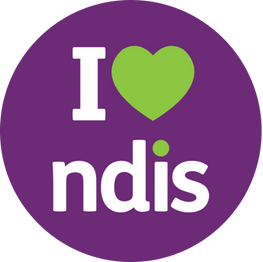STA, commonly referred to as respite care, offers individuals with disabilities temporary support and accommodation away from their usual home. This service not only provides participants with a change of environment but also offers carers a much-needed break from their caregiving responsibilities. Typically, STA covers care for up to 14 days at a time and includes assistance with self-care, accommodation, food, and activities. There are stringent legislation guidelines that all NDIS providers must adhere to.
Recent Changes to STA and Respite Guidelines
As of early 2025, the National Disability Insurance Agency (NDIA) has introduced new operational guidelines for STA. Key updates include:
- Clarification on Usage: STA funding is now explicitly designated for respite purposes and cannot be used for holidays, social camps, or tourist activities. This encompasses expenses such as cruises, holiday packages, airfares, and theme park visits.
- Eligibility Criteria: Participants residing in Supported Independent Living (SIL) arrangements or those living alone are generally ineligible for STA funding. The primary intent is to support ongoing informal care arrangements between participants and their carers.
- Funding Scope: STA funding now encompasses all expenses within a 24-hour period, including assistance with self-care, accommodation, food, and activities. This integrated approach ensures participants receive comprehensive support during their short stay.
How to Qualify for Respite Funding
To be eligible for STA or respite funding under the NDIS, the following criteria are considered:
- Disability-Related Need: The requirement for respite must be directly connected to the participant’s disability and necessary for their support.
- Goal Alignment: The respite should aid in achieving the participant’s personal goals, such as enhancing independence or community participation.
- Value for Money: The proposed respite support should represent reasonable value, considering the benefits to both the participant and their carer.
- Impact on Informal Support: Funding decisions will consider the extent of support provided by informal networks, like family members, and how respite might sustain these arrangements.
Application Process for Respite Funding
- Preparation: Gather relevant information, including the participant’s NDIS plan details, specific respite needs, and how the respite aligns with their goals.
- Consultation: Engage with an NDIS planner or support coordinator to discuss the need for respite care and ensure it aligns with the participant’s plan goals.
- Submission: Complete and submit the NDIS Respite Care Funding Request Form. This form can be lodged by the participant, family members, or authorized nominees.
- Review: The NDIA will assess the request, considering the outlined criteria, and determine the appropriate level of funding.
- Approval and Implementation: Once approved, collaborate with your support coordinator or Local Area Coordinator (LAC) to identify suitable respite service providers and schedule the necessary support.
Conclusion
The recent updates to the NDIS STA and respite guidelines emphasize the importance of respite care in supporting both participants and their carers. By understanding these changes and following the outlined steps, parents and carers can effectively access respite funding, ensuring sustainable and balanced caregiving arrangements.
For more detailed information, refer to the official NDIS guidelines on Short Term Accommodation and Respite.

